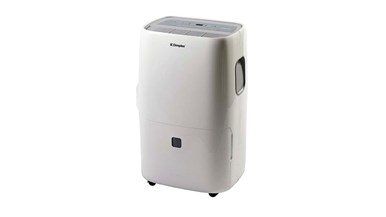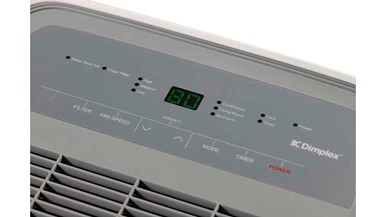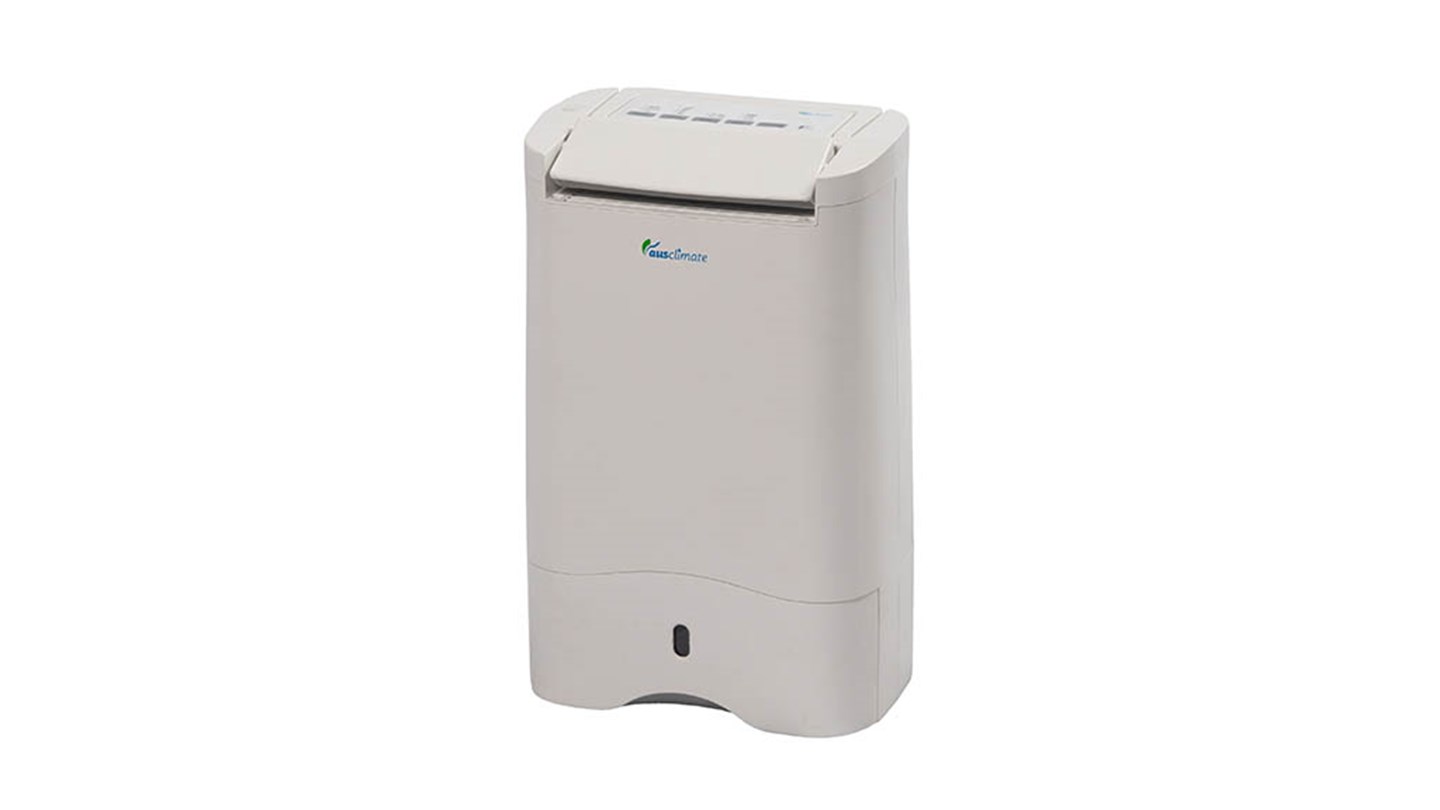Dimplex GDDE50E review
Refrigeration dehumidifier. Priced at $600.
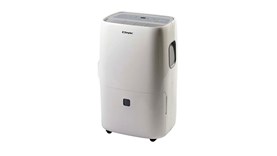
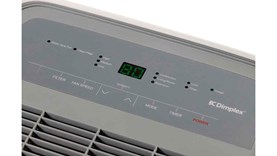
Good points
Bad points

Unlock our expert review and more
- Reviews and ratings you can trust
- Easy side-by-side comparison
- Recommended products at a glance
-
Type
View more details.
Desiccant models use a disc or belt of moisture-absorbing material to dry the air. Refrigeration models use refrigeration coils, similar to a fridge or air conditioner, to cool the air and condense the moisture out. See our buying guide for more information on these and thermo-electric models.
- Refrigeration
-
Recommended
View more details.
We recommend dehumidifiers with CHOICE Expert Rating of at least 70%.
-
CHOICE Expert Rating
View more details.
The CHOICE Expert Rating score is made up of water removal (30%), claimed water removal (20%), energy efficiency (30%) and ease of use (20%).
-
Water removal score
View more details.
We set up our dehumidifiers in a temperature- and humidity-controlled test chamber. For each model, we measure the amount of water removed during three test runs at different temperature/humidity combinations that reflect humid winter climates (between 8°C and 16°C and 65% to 90% relative humidity). For more details, see our article on how we test dehumidifiers.
-
Energy efficiency score
View more details.
This is a comparative rating of the model's energy consumption and how much water it extracts. An efficient model will use less energy but extract more water when compared to other models.
-
Claimed water removal score
View more details.
Each dehumidifier has a claim as to how much water they can extract during a 24-hour period. We work out whether they meet this claim at three different relative humidities and temperatures.
-
Ease of use score
View more details.
Our lab testers assess each model for ease of accessing and emptying the water tank, quality of instructions and labels, using the controls, mobility of the unit and ease of cleaning it.
-
Room heating (W)
View more details.
The heating effect from the dehumidification process (measured at 12C and 75% relative humidity). This is generally noticeable but far short of what a typical 2000W or 2400W heater will deliver. See our buying guide for more about this.
-
Power consumption (W)
View more details.
The measured power consumption, in watts, on the unit's highest power setting. This is measured after the unit has been running for at least five minutes to ensure the compressor (if it has one) is running.
-
Noise (dBA)
View more details.
For comparison, a typical conversation is carried out at about 60dB, while city traffic is measured at around 80dB.
-
Measured tank capacity (to switch-off, L)
View more details.
This is the maximum amount of water, in litres, collected in our test before the machine detected "tank full" and switched off. It's usually close to the claimed tank capacity but may be a little under or over that claim.
-
Shop Ethical rating
View more details.
Shop Ethical rates the environmental and social impact of the company (not the product) using independent sources. This rating is not included in our total score. N/A means there is no rating for that company
- NA
-
Warranty (years)
View more details.
The stated manufacturer warranty. Dehumidifiers should last at least 6 years so we rate a 1-year warranty as poor, and a 3-year warranty as reasonable. "Lifetime" warranties are good but are not as clear as a fixed term in years.
- 2
- Country of origin
- China
-
Availability
View more details.
'Tested models' are those that we've tested and that are currently available in shops. In some instances, at the request of members and when products are still available on the second-hand market and via sites like eBay, we also include dehumidifiers that were previously tested but are now discontinued.
- Tested model
-
Price
View more details.
Recommended or typical retail price.
- $600
-
Running cost per hour in cents
View more details.
Calculated from our performance tests and based on an electricity cost of 40c/kWh.
-
Cost to remove 10L of water
View more details.
Based on the running cost and water extraction rate in our performance testing, and an electricity cost of 40c/kWh.
-
Size
View more details.
Based on the amount of moisture the dehumidifiers can extract from the air, we've made size categories suitable for different room sizes.
-
Recommended room size
View more details.
Claim from the manufacturer for maximum room size the dehumidifier will serve. Sometimes in square meters and sometimes in cubed meters, and sometimes both.
- Weight (kg)
- 20
-
Claimed water removal rate (L/day)
View more details.
The rate claimed at 30–32°C and 80% relative humidity.
- 60
-
Claimed operating temperature range
View more details.
The range of room temperatures in which the dehumidifier will function.
- 5-32C
- Number of fan speeds
- 3
- Website
- dimplex.com.au
- Timer
- Yes
-
Air filter
View more details.
A filter on the air intake to prevent dust etc getting into the machine, and to help clear the air in the room.
- Yes
-
Laundry mode
View more details.
A special mode designed to dry laundry placed nearby on drying racks.
- No
-
Humidistat
View more details.
This allows you to set the humidity level for the room.
- Yes
-
Wheels/castors
View more details.
Wheels or castors can make it easier to move the dehumidifier from room to room, but many are light enough to just pick up and carry.
- Yes
-
Cord storage
View more details.
Cord storage allows you to conveniently coil and store the power cord when the dehumidifier is not in use.
- No
-
Carry handle(s)
View more details.
Most models have one or two carrying handles to help with moving them around.
- 2

